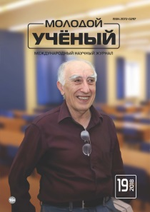The article is about the use of modern pedagogical technologies in teaching foreign languages, their advantages and positive effect in developing students’ communicative competence. It shares with some non-traditional forms of conducting lessons which provide an opportunity to develop the creative independence of students, to teach them to work with various sources of knowledge.
Key words: communicative competence, pedagogical technologies, non-traditional methods, teaching process, intercultural communication
English language holds a particularly important place among the foreign languages taught in the higher educational establishments of Uzbekistan, and interest of the students to it is constantly growing. Especially after the presidential decree 1875 “On further development of foreign language teaching and learning” from 10.12.2012, active measures have been taken in our country to create conditions for learning English. According to it, the new level system determining a student’s command as a foreign language CEFR (A1 — C2) which is commonly accepted in Europe was established in Uzbekistan. Each level is characterized by a set of certain communicative skills. And in order to develop these communicative skills in students, teachers should apply new modern information and pedagogical technologies in teaching foreign languages [2, 56].
With this reason nowadays the problem of teaching English is very urgent. The teacher is faced with the task of forming a personality that will be able to participate in intercultural communication. Increasingly, the question of the use of new information technologies in teaching process is being raised. And these are new forms and methods of teaching, a new approach to the learning process as a whole. The main purpose of teaching English is to form and develop a communicative culture of students and to learn how to master the foreign language on the basis of the target language.
The lesson is the basic organizational form of education. A good lesson is difficult. The art of the lesson depends on the understanding and fulfillment of the teacher's requirements, which are determined by the tasks and principles of instruction [1, 92]. Creating the conditions for practical mastery of the foreign language and choosing the training methods are the main task of the teacher. The global goal of the foreign language lesson is to become involved in a different culture and participate in the dialogue of cultures [3, 191].
Currently, a large number of modern pedagogical technologies are being used in teaching process: training in cooperation, project methodology, and Internet resource. Here huge possibilities of the Internet resource should be taken into account. It creates the conditions for obtaining any information: regional geographic material, information about the life of young people in the countries of the studied language, newspaper or magazine articles, and much more.
Using information resources of the Internet, you can more effectively solve didactic problems in the lesson: improving the ability to audit based on authentic texts, replenishing the vocabulary with the vocabulary of modern language, the formation of a steady motivation for learning English.
Interactivity does not just create real life situations, but it also forces students to respond adequately to them through the English language. And when it starts to work out, we can talk about language competence, even if there are errors. The main thing is the ability to react spontaneously to the statements of others.
When working with a computer, the role of the teacher changes, the main task of which is to support and guide students. Relations with students are built on the principles of cooperation and joint creativity by increasing independent and group work, the volume of practical works of search character increases.
Another form of non-traditional lesson is the method of projects. The project methodology differs in the cooperative nature of the tasks at work on the project. This work assumes a high level of individual and collective responsibility for the performance of each task. When selecting the topic of the project, the teacher focuses on the interests of the students, on the already acquired knowledge and skills. The completed project can be in different forms: an article, a recommendation, an album, etc. The forms of the presentation of the project are also diverse: a report, a conference, a contest, a holiday, etc. The role of the teacher is to prepare the students for the project, to select the topic, to help the students at work, to monitor and advise students on the project as an accomplice.
Another unconventional form of conducting a lesson is a lesson-excursion. The student should be able to conduct a tour of the city, tell the guests about the identity of the culture of the peoples living here. The principle of dialogue of cultures assumes the use of cultural material about the native country, republic, city, etc. Other kinds of lessons are also can be applied such as lesson-performance, lesson-holiday, lesson-interview, etc. Preparation and conducting of lessons of these types stimulates students to further study of English, and broadens their horizons.
The effectiveness of the learning process depends on the teacher's ability to correctly organize a lesson and choose the right form of the lesson. Non-traditional forms of conducting lessons provide an opportunity to develop the creative independence of students, to teach them to work with various sources of knowledge. But it should be noted that it is not advisable to apply too often to similar forms of conducting lessons. This will lead to a drop in students' interest in the subject.
To conclude we may say that the key to successful speech activity of students is the skilful use of modern and non-traditional forms of lessons by teachers, when students join the culture of the countries of the studied language, expand knowledge about the cultural heritage of their native country, which allows them to actively participate in the dialogue of cultures.
References:
- Гальского Н. Д. Современная методика обучения иностранным языкам, М.: АРКТИ, 2003
- Danny Gagnon, Developing Effective Communication Skills, Montreal University, 2011
- Lustig Myron W., Koester Jolene. Intercultural Competence: Interpersonal Communication Across Cultures, Pearson, Boston, 6th Edition, 2010







